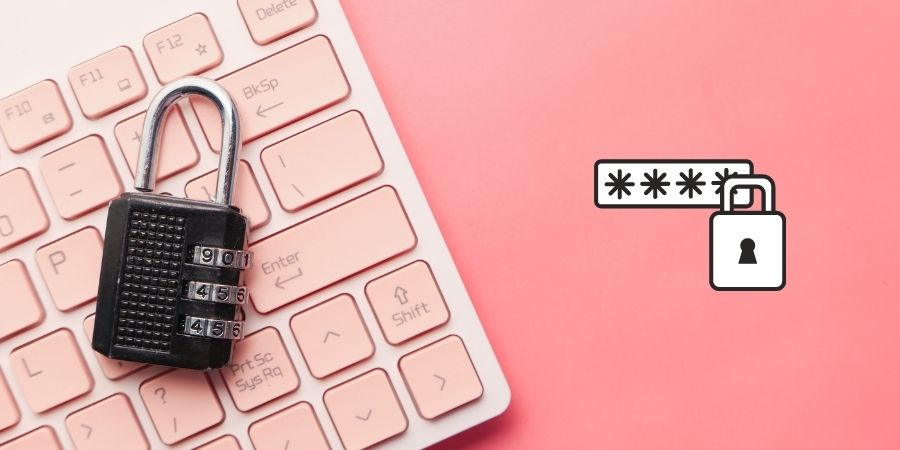Passwords have been around for decades, but they are no longer the most reliable way to protect our accounts. Reports show that people still use shockingly weak passwords like “123456” or “password“, which have consistently topped the list of most common passwords for years. In fact, according to NordPass’s annual report, millions of users continue to rely on these easy-to-guess passwords, putting their accounts at serious risk.
The problem does not stop there. Many people reuse the same password across multiple platforms. So, if one account is hacked, all the others become vulnerable too. On top of that, phishing attacks are getting smarter every day. Even if you set a strong password, it can still be stolen if you accidentally click on a malicious link or share it on a fake website.
To fix these problems, tech companies are moving towards a new method called Passkeys. Passkeys are designed to be both safer and easier to use. They replace traditional passwords with modern, built-in security technology that makes it almost impossible for hackers to steal your login details. At the same time, they remove the headache of remembering or typing complicated passwords.
In this guide, I will explain what Passkeys are, how they work, where you can use them, and why they are considered the future of online security.
What is a Passkey?
A Passkey is a new way to log in to websites and apps without using a password. Instead of typing a password, you simply confirm your identity using your phone’s fingerprint scanner, Face ID, or device PIN.
Passkeys are stored securely on your device and synced across your devices through cloud services like iCloud Keychain (Apple), Google Password Manager, or Microsoft Authenticator. This makes them both secure and easy to use.
How Do Passkeys Work?
Passkeys use public-key cryptography. Do not worry, you do not need to be a tech expert to understand it. Here is how it works in simple words:
- When you create a passkey for a website or app, two keys are generated: a public key and a private key.
- The public key is stored with the service (for example, Gmail or Facebook).
- The private key stays on your device and never leaves it.
- When you log in, the service sends a challenge, and your device confirms it using your private key.
- You prove it’s you by using Face ID, fingerprint, or device PIN.
This process means no one else can log in to your account, even if they somehow know your username.
Why Are Passkeys Safer Than Passwords?
Passwords can be stolen, guessed, or leaked in a data breach. Passkeys solve these problems:
- No reuse problem: Every account has its own unique key.
- Phishing-proof: You cannot be tricked into entering a passkey on a fake website because the passkey only works with the genuine site.
- Stored securely: Passkeys never leave your device and cannot be stolen like a password.
- Biometric security: Face ID or fingerprint adds another layer of protection.
Where Can You Use Passkeys?
Passkeys are already supported by big companies and platforms. Some examples:
- Apple ID and iCloud
- Google accounts
- Microsoft accounts
- PayPal
- eBay
- Best Buy
- Popular password managers like NordPass, 1Password, and Dashlane
Support is growing, and more apps and websites are adopting passkeys every month.
How to Use Passkeys
- On Phones – When you sign in to a service that supports passkeys, your phone will ask you to create one. Next time you log in, you just confirm with fingerprint, Face ID, or PIN.
- On Laptops and Desktops – Modern browsers like Chrome, Safari, and Edge already support passkeys. You can use your device’s authentication or scan a QR code with your phone to log in.
- Across Devices – If you are logged into iCloud, Google, or Microsoft, your passkeys will sync across devices. That means you can create a passkey on your phone and use it later on your laptop.
What If You Lose Your Device?
One common question is: What happens if I lose my phone or laptop that stores passkeys?
Do not worry. Passkeys are backed up and synced through cloud services. If you get a new device, just sign in with your account (Apple, Google, or Microsoft), and your passkeys will be restored. This way, you will not be locked out of your accounts.
Do You Still Need a Password Manager?
Passkeys may eventually replace passwords, but for now, you will still need a password manager. Not all services support passkeys yet. Password managers like 1Password and Dashlane are also adding passkey support, making it easier to manage both passwords and passkeys in one place.
The Future of Online Security
Tech giants are working together to make passkeys universal. The FIDO Alliance (backed by Apple, Google, and Microsoft) is leading this effort. The goal is a world where passwords are no longer needed, and every login is simple, quick, and secure.
It will take time, but passkeys are clearly the future. They combine the ease of unlocking your phone with the strongest level of protection against hackers and phishing attacks.
Conclusion
Passkeys are a big step forward in online security. They are more secure than passwords, easier to use, and supported by all major platforms. While passwords will not disappear overnight, we are moving towards a passwordless future.
If your favorite apps and services support passkeys, it is a good idea to set them up now. You will get a taste of the future – one where logging in is as easy as unlocking your phone.







